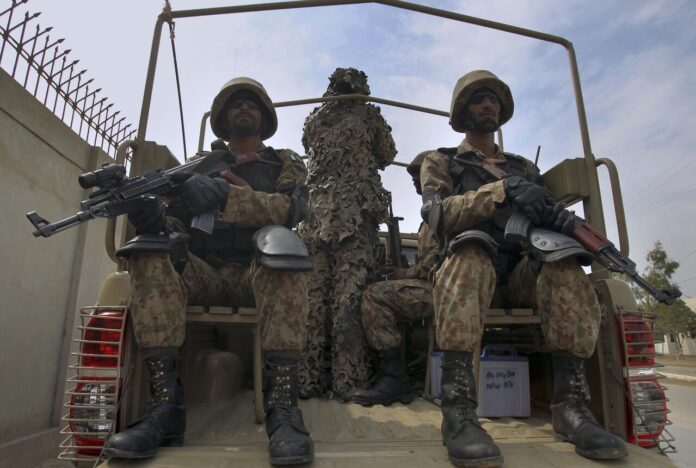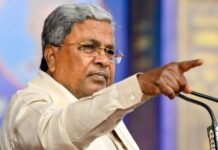
New Delhi: When Pakistan launched the Special Investment Facilitation Council (SIFC) in June 2023, officials heralded it as the catalyst for the country’s economic revival—a “single-window” platform promising streamlined approvals and billions of dollars in Gulf investments. The echoes of earlier ambitious claims around the China-Pakistan Economic Corridor (CPEC), a $60 billion infrastructure initiative begun in 2015, were unmistakable. Yet two years into SIFC, Pakistan’s economic dreams remain largely unrealised, undermined by structural flaws, persistent terrorism, and entrenched military dominance.
Both initiatives share a pattern of initial fanfare followed by eventual stagnation. CPEC was to transform Pakistan’s economy through vast infrastructure projects connecting the port city of Gwadar to western China. Today, only three of 15 key projects in Gwadar are completed. The rest languish in bureaucratic limbo, marred by security threats and chronic inefficiencies. Gwadar International Airport remains just 36 percent complete, and promised power plants and water-supply networks have yet to materialise. China, originally expected to finance 90 percent of these projects, has contributed barely a tenth, leaving Pakistan burdened with the unexpected financial fallout.
The SIFC seems poised to repeat these failures. Despite approving 28 major projects—including flagship developments like the Diamer-Bhasha Dam and investments in the Reko Diq copper mines—the council is bogged down by internal delays. While foreign direct investment (FDI) rose slightly to $1.6 billion in fiscal year 2025, this remains negligible against Pakistan’s towering external debt obligations of over $30 billion due this fiscal year alone. The gap between SIFC’s stated ambitions and reality has grown uncomfortably large.
Central to these recurring disappointments is the military’s pervasive involvement in economic governance. Army Chief Field Marshal Asim Munir sits atop the SIFC alongside the civilian prime minister, and senior generals directly oversee crucial investment decisions. Military-linked businesses—through entities like the Fauji Foundation and Army Welfare Trust—dominate significant portions of Pakistan’s economy, from real estate to manufacturing. The result is a marketplace skewed towards defence-driven interests, leaving limited room for genuine private-sector competition or innovation.
Leading Pakistani economists and analysts have highlighted this structural flaw, noting that military-managed initiatives prioritise grand infrastructure and showcase projects over addressing fundamental problems, such as the chronically low tax-to-GDP ratio—hovering near 10 percent, well below the IMF’s recommended benchmarks. This structural neglect ensures that poverty continues to rise, reaching 25 percent in 2023, with nearly 13 million Pakistanis newly impoverished.
Even more damaging is Pakistan’s inability—or unwillingness—to dismantle the terrorist networks that devastate its internal stability and repel potential investors. Terrorism-related deaths surged by 45 percent to 1,081 in 2024, with over 1,000 attacks recorded—an unprecedented figure in Pakistan’s troubled recent history. Militants, particularly the Tehrik-e-Taliban Pakistan (TTP), have launched attacks targeting vital infrastructure and security personnel, severely disrupting economic activities and development projects.
Major multinational corporations, notably Shell and TotalEnergies, have already withdrawn from Pakistan, citing untenable security and regulatory unpredictability. The IMF has repeatedly expressed concern that Pakistan may divert financial aid into defence-related expenditures rather than genuine economic reform or social development. Such international skepticism reinforces investor anxiety, leaving Pakistan ranked among the riskiest investment destinations globally.
Other nations that successfully overcame similar challenges, such as Colombia after FARC or Sri Lanka post-LTTE, adopted comprehensive, transparent reforms coupled with civilian oversight and robust socio-economic investments. Pakistan’s counterterrorism, by contrast, remains narrowly kinetic, lacking the integrated approach needed for genuine stability. Military dominance continues to drive an aggressive security-focused policy, prioritising defence expenditures—which now reach 2.3 percent of GDP annually—over health, education, or poverty alleviation.
Despite mounting evidence that deep institutional reforms are urgently required, Pakistan remains unwilling to fundamentally alter its governance or security paradigms. The SIFC, much like CPEC before it, thus represents another missed opportunity. Unless Pakistan acknowledges and confronts the intertwined crises of military-driven governance, unchecked terrorism, and structural economic decay, its economic initiatives will remain little more than superficial gestures.
In the words of an Islamabad-based analyst, “Army-first economics is no economics at all.” Without decisive shifts toward civilian-led governance, transparent policymaking, and genuine counterterrorism measures, Pakistan’s economic future will continue to reflect its troubled past—a history repeating itself, characterised by grand visions, unfulfilled promises, and persistent decline.
(Aritra Banerjee is a defence & strategic affairs columnist)







